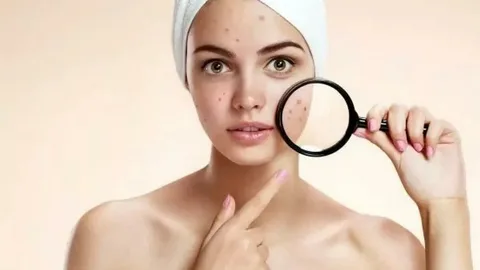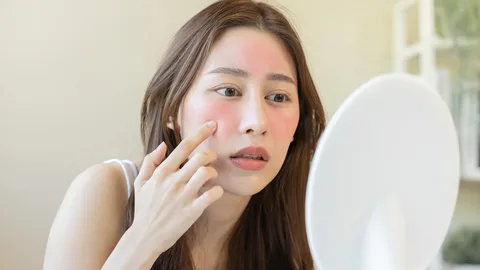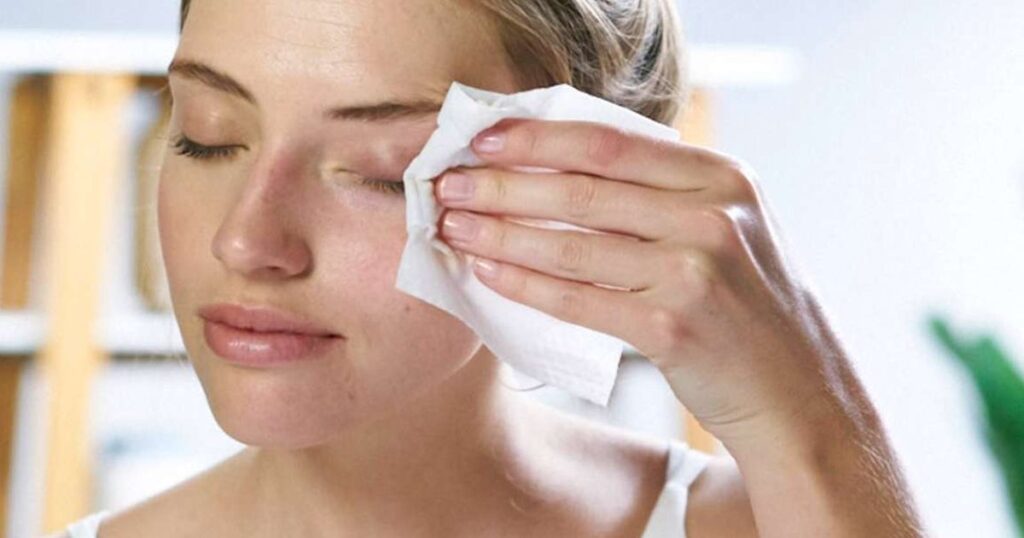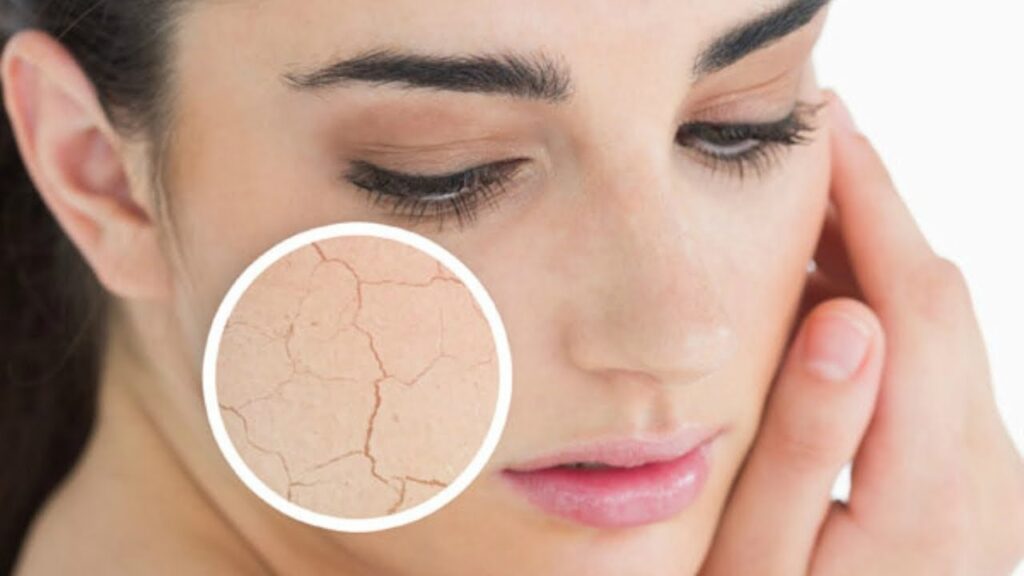Makeup can be a powerful tool for enhancing beauty and boosting confidence. However, for many individuals, it can also lead to an unwelcome side effect: acne.
If you’ve ever wondered whether your makeup routine might be contributing to your breakouts, you’re not alone.
This article will explore the complex relationship between makeup and acne and makeup cause acne? delving into the ingredients that can cause breakouts, how to choose the right products, and effective skincare practices to maintain healthy skin.
Understanding Acne
Before we dive into how makeup can cause acne, it’s essential to understand what acne is and its various forms. Acne is a common skin condition that occurs when hair follicles become clogged with oil, dead skin cells, and bacteria.
This blockage can lead to different types of acne lesions:
- Comedones: These are non inflammatory lesions that include blackheads (open comedones) and whiteheads (closed comedones).
- Papules: Small red bumps that can be tender.
- Pustules: Similar to papules but filled with pus.
- Nodules: Larger, painful bumps that develop deep within the skin.
- Cysts: Deep, pus filled lesions that can cause scarring.
Acne can be triggered by various factors, including hormonal changes, diet, stress, and skincare products especially makeup routine.
How Makeup Can Contribute to Acne
1. Comedogenic Ingredients
Many makeup products contain ingredients that can clog pores, leading to what is known as acne cosmetica or makeup induced acne. Comedogenic ingredients are those that are likely to cause comedones. Here are some common culprits:
- Oils: Certain oils, such as coconut oil and mineral oil, can be too heavy for some skin types.
- Silicones: Ingredients like dimethicone can create a barrier on the skin that traps oil and bacteria.
- Waxes: Beeswax and other waxes can also contribute to clogged pores.
- Fragrances: Artificial fragrances can irritate the skin and lead to inflammation.
2. Heavy or Oily Products
Using thick foundations, heavy concealers, or oily primers can clog pores more easily than lighter formulations. Products that are not labeled as “non comedogenic” may exacerbate acne prone skin conditions.
3. Poor Hygiene Practices
Makeup brushes and sponges harbor bacteria if not cleaned regularly. Applying makeup with dirty tools can transfer bacteria onto the skin, leading to breakouts.
Additionally, leaving makeup on overnight prevents the skin from breathing and allows for the accumulation of dirt and oil.
4. Allergic Reactions
Some individuals may have allergic reactions to specific ingredients in makeup products. This reaction can result in inflammation and breakouts. It’s crucial to identify any irritants in your cosmetics.
5. Skin Type Considerations
Different skin types react differently to makeup. For example:
- Oily Skin: Those with oily skin may find that heavier products exacerbate their condition.
- Dry Skin: Conversely, individuals with dry skin might experience irritation from certain formulations that are too harsh or drying.
Identifying Makeup Induced Acne
Recognizing whether your makeup is contributing to acne involves careful observation of your skin’s response after using specific products. Here are some signs of makeup induced acne:
- Breakouts in Specific Areas: If you notice consistent breakouts in areas where you apply makeup (e.g., forehead, cheeks), it may be time to evaluate your products.
- Timing of Breakouts: If breakouts occur shortly after using a new product or after wearing makeup for an extended period, it could indicate a reaction.
- Type of Lesions: If you primarily develop comedones or pustules after using certain cosmetics, they may contain comedogenic ingredients.
Preventing Makeup Induced Acne
1. Choose Non Comedogenic Products
When selecting makeup products, look for those labeled as “non comedogenic.” These products are formulated not to clog pores and are often better suited for acne prone skin.
2. Opt for Oil Free Formulations
Oil free foundations and primers are less likely to contribute to breakouts. Many brands offer lightweight formulas designed specifically for oily or combination skin types.
3. Maintain Good Hygiene Practices
Regularly clean your makeup brushes and sponges with a gentle cleanser or brush cleaner. Aim to clean them at least once a week to minimize bacterial buildup.
4. Remove Makeup Before Bed
Always remove your makeup before going to bed. Use a gentle cleanser suitable for your skin type to ensure all traces of makeup are gone.
5. Incorporate a Skincare Routine
A consistent skincare routine is essential for maintaining healthy skin:
- Cleanser: Use a gentle cleanser twice daily.
- Exfoliation: Exfoliate regularly (1–2 times per week) with a chemical exfoliant containing salicylic acid or glycolic acid.
- Moisturizer: Even oily skin needs hydration; choose lightweight, oil free moisturizers.
- Sunscreen: Protect your skin from UV damage with a non comedogenic sunscreen during the day.
Ingredients to Avoid in Makeup
Being aware of specific ingredients that may trigger acne is crucial for making informed choices about cosmetics:
- Lanolin: Often found in creams and lip balms; it can clog pores for some individuals.
- Coconut Oil: While beneficial in some contexts, it’s comedogenic for many people.
- Isopropyl Myristate: A common ingredient in many cosmetic formulations; it has a high comedogenic rating.
- Sodium Lauryl Sulfate (SLS): Found in cleansers; it can irritate sensitive skin types.
- Alcohols (denatured alcohol): Can be drying and irritating; look for fatty alcohols instead (like cetyl alcohol).
The Role of Different Skin Types
Understanding how different skin types respond to makeup can also inform whether you should start with clean or dirty locks:
Oily Skin
Individuals with oily skin often struggle with excess sebum production which can lead directly toward clogged pores!
Choosing lightweight formulations designed specifically towards this concern helps minimize risk associated while still allowing enjoyment from various cosmetic options available today!
Dry Skin
For those experiencing dryness heavier foundations might exacerbate existing issues leading towards irritation! Opting instead towards hydrating formulas containing beneficial ingredients such as hyaluronic acid aids moisture retention without sacrificing coverage!
Combination Skin
This type presents unique challenges areas prone toward oiliness combined alongside drier patches require careful selection! Look out for hybrid products offering balanced benefits catering specifically tailored needs ensuring optimal results achieved every time!
The Importance of Professional Help
If you struggle with persistent acne despite taking precautions with your makeup choices consider consulting a dermatologist! They provide tailored advice based on unique characteristics surrounding individual needs ensuring optimal outcomes achieved every time!
Dermatological Treatments
- Topical Treatments: Prescription strength topical treatments containing retinoids or benzoyl peroxide help manage acne effectively!
- Oral Medications: In cases of severe acne oral medications such as antibiotics/hormonal treatments may be recommended!
- Chemical Peels: Professional chemical peels help exfoliate deeply reducing overall appearance while promoting healthier complexion overall!
The Psychological Impact of Acne
Acne isn’t just a physical condition; it also has significant psychological effects on individuals who experience it! Studies show that people suffering from active breakouts often report feelings of low self esteem along with increased anxiety levels surrounding social interactions!
Building Confidence
Understanding how cosmetics play into this equation becomes crucial many rely upon these tools not just enhance appearances but also boost confidence levels! Finding appropriate solutions addressing both concerns simultaneously leads toward healthier relationships formed between oneself & others!
Tips for Choosing Makeup That Won’t Cause Breakouts
To help you navigate the world of cosmetics without exacerbating your acne prone skin, here are some tips: Can Makeup cause acne?
- Read Labels Carefully
- Always check product labels for terms like “non comedogenic” or “oil free.” These labels indicate formulations less likely to clog pores.
- Test New Products First
- Before committing fully to a new product, test it on a small area of your face or neck first this way you’ll know if it causes any adverse reactions before applying everywhere!
- Consider Mineral Makeup
- Mineral based foundations often contain fewer irritating ingredients than traditional liquid foundations they’re typically lighter too allowing better breathability throughout wear time!
- Avoid Heavy Coverage Products During Breakouts
- When experiencing active breakouts avoid heavy foundations/concealers which may exacerbate inflammation instead opt for lighter tinted moisturizers/bb creams providing coverage without clogging pores further down line!
- Stay Hydrated & Nourished Inside Out
- Drinking plenty water helps keep body hydrated aiding overall healthiness while consuming nutrient rich foods supports optimal functioning systems including maintaining clear complexion!
The Best Makeup Techniques for Acne Prone Skin
Even if you’re dealing with active breakouts there are techniques available allowing effective application without worsening situation further! Here’s how:
- Start With Skincare First!
- Always begin by applying suitable skincare products tailored towards individual needs before any cosmetic application occurs!
- Use Primer Wisely
- A good primer creates an even canvas allowing smoother application while also helping control oil production throughout day keeping shine at bay!
- Apply Foundation Sparingly
- Instead of layering thick layers try applying foundation sparingly focusing primarily on areas needing coverage most this prevents caking while allowing natural texture shine through!
- Use Concealer Strategically
- Apply concealer directly onto blemishes using clean brush/sponge rather than applying all over face this minimizes additional product buildup around affected areas leading towards clearer results achieved overall!
- Set With Powder Lightly
- Use translucent setting powder lightly dusted across t-zone only this helps absorb excess oils without adding unnecessary weight onto already inflamed areas present during wear time too!
- Finish With Setting Spray
- A good setting spray helps lock everything into place ensuring longevity throughout wear time while also providing hydration needed during long days ahead too!
Conclusion
In conclusion while makeup enhances beauty it also has potential risks associated particularly concerning breakouts! Understanding how various factors interplay provides valuable insights necessary navigating through these challenges successfully!
By selecting non comedogenic products maintaining good hygiene practices incorporating effective skincare routines you’ll enjoy wearing cosmetics without compromising overall healthiness!
If you suspect current routine contributes towards unwanted blemishes take proactive steps evaluating choices consulting professionals if necessary ensuring path forward remains clear!
FAQs About Makeup and Acne
- Can wearing makeup cause acne?
- Yes, certain ingredients in makeup can clog pores and lead to acne breakouts.
- What types of makeup should I avoid if I have acne prone skin?
- Avoid heavy foundations, oily products, and anything labeled as comedogenic.
- How often should I clean my makeup brushes?
- You should clean your makeup brushes at least once a week to prevent bacteria buildup.
- Is mineral makeup better for acne prone skin?
- Mineral makeup is often lighter and contains fewer irritating ingredients, making it a better option for some people with acne prone skin.
- What should I do if my current makeup routine is causing breakouts?
- Evaluate your products for comedogenic ingredients, switch to non comedogenic options, maintain good hygiene practices, and consider consulting a dermatologist if necessary.




